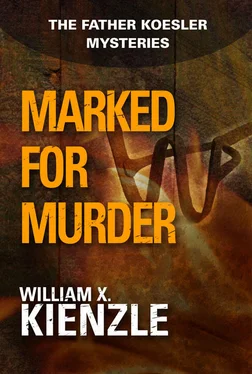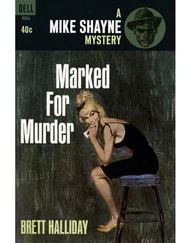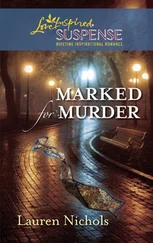He returned to the living room, sat again across from Sister, and gently rattled the ice against the sides of his glass. He liked the sound. “And how about you? Weren’t you going to check some of your contacts?”
“Yes. I went to see a friend, a Sister Helen, who runs a halfway house for women who want to get out of the life—the profession, she calls it. She knows more about prostitution and prostitutes than just about anybody. Over the past couple of weeks she’s been checking things out for me. Today she had four women who regularly work the areas where all three of the victims were picked up. Or, with Mae Dixon, where she lived and worked.”
“And?”
“And nothing, really. None of them was aware—before these murders, that is—of anything like some John dressed as a priest. All of them said that something like that would have been noised about. And none of them had seen anything like that, nor had there been any word on the street about it. All of them said that if Adelle and Ruby say they saw the guy, they probably saw him . . . that they weren’t the kind who would give false information—especially to Lieutenant Tully.”
“So . . .” Another discouraging word.
“But,” Sister added, “that doesn’t mean that Adelle and even Ruby couldn’t be mistaken in their identification of Dick as the man they saw.”
“Of course.”
The phone rang—11:10. Just what I need, thought Koesler: a late-night sick call. He excused himself and took the call in his office. “St. Anselm’s.”
“Father?”
“Yes.”
“Father Koesler?”
“Yes.” It didn’t sound like a sick call.
“This is Arnold Bush.”
Arnold Bush . . . now, there was a familiar name. But after all these years, all the people he’d met, and the lateness of the hour, nothing clicked.
Spurred on by the silence, “Arnold Bush . . . from the examiner’s office. We had lunch today.”
“Of course.”
“I hope this isn’t too late to call.”
“No . . . no.” Depending on why he was calling, this could easily be too late for a call.
“I want to invite you over for dinner.”
It was too late for a call. “That’s very kind of you, Arnold, but I’m pretty busy just now. Maybe in a month or so . . .” Koesler recognized that this was the type of invitation that would eventually have to be accepted. He had the feeling that Arnold Bush was determined.
“But I need you now.”
“What’s the matter, Arnold?”
“I can’t tell you over the phone. I got to see you.”
“And it’s really urgent?”
“Yeah, really.”
Koesler consulted the calendar on the desk before him. “Well, if it’s really an emergency . . .” There was a parish council meeting tomorrow evening. Under the circumstances, he could be late for it and probably not miss a thing of great importance. “How would tomorrow evening be?”
“That would be perfect.”
“Six-thirty be all right?”
“Fine.”
Bush gave Koesler the address and offered directions. Even though the street name was not familiar, Koesler knew the general area and knew he could find it.
When he returned to the living room, Sister Therese was putting on her coat. The remainder of tonight’s schedule, at least, would remain intact.
At the door, they promised to keep in touch in their all-out effort to clear Dick Kramer.
Koesler finished his drink and got into bed. His last conscious thought was about Arnold Bush. What could be so important that it demanded a face-to-face meeting? After all, they had just met today. He couldn’t imagine what it might be. So he put it out of his mind.
Still, there was something—as yet indefinable—about Arnold Bush. Something that nagged at Koesler. But he couldn’t put his finger on it. That troubled him. Maybe at the meeting tomorrow night. Maybe then.
37
The neighborhood was familiar enough. But Koesler could not recall ever having been there socially.
The area was best known for its principal structure, the massive Masonic Temple, which had once housed the annual week-long visit of the Metropolitan Opera. Now the Met no longer played in Detroit and not that many other events were booked in the overly large auditorium. Just down the street, at the opposite end of Cass Park, stood Cass Tech, easily Detroit’s premier public high school.
Father Koesler recalled many memorable occasions at the Masonic Temple. Among them were concerts by outstanding artists; operatic performances, including his first experience, Carmen ; a superlative Porgy and Bess ; Yul Brynner’s The King and I.
None of that was going on tonight. The neighborhood was shrouded in snow, and bitterly cold. The streets were practically deserted. He searched carefully for a parking space that would be in a well-lit area and at the same time not too far from his destination— an apartment building at the corner of Fourth and Temple.
He found a near ideal spot. Its only drawback, common to much of the city, was the number of drifts that had piled up over many snowstorms and, short of a warm spell, would not be removed. He slid into the tracks of previous cars and offered a silent prayer that he would be able to extricate himself when the time came.
The time of departure was essential to his strategy for the evening. He intended to return to his rectory for at least some of the parish council meeting. On the one hand, he really ought to at least make an appearance at part of that meeting and on the other; he did feel somewhat queasy about this dinner invitation.
One thing, and one thing alone, had brought him to this point: his too often indulged inability to say no. It had been an element of Koesler’s personality so long as to be immemorial. And it was so ingrained that he knew it was foolishly futile to resolve to change.
This invitation had come without warning. And it wasn’t that this evening had actually been free of any other engagement. There was the council meeting. Also, he wanted to devote every possible moment to the cause of freeing Father Kramer. Besides, he would much rather have had his routine meal at the rectory—a little wine and no surprises.
But here he was at the desolate corner of Fourth and Temple on the mostly uninhabitable fringe of downtown Detroit. And here was the apartment building, down-at-the-heels as expected, that housed Arnold Bush, Koesler’s host for the evening.
There was no difficulty in entering the building. It had no security system whatsoever. Koesler had no reason to expect any guard. But if he’d had his druthers, he would have been extremely grateful for at least a semblance of security.
He climbed the rickety stairs to the second floor and easily located Bush’s apartment. In addition to having the number on the door, it alone among the second-floor apartments had a thin line of light shining out from beneath the door. Additionally there was the pungent odor of cabbage cooking.
Koesler braced himself and knocked on the door. It was opened almost immediately. A smiling Arnold Bush greeted him, took hat and coat, and draped them over the single shaft of ancient wood that served as a clothes tree. Koesler had brought no wine or other gift. Priests, as a singular class, generally considered their presence gift enough.
“Thank you for coming. Thank you very much.” Bush—for Bush—was effusive.
“Not at all.” Koesler was not sure what he had expected, but it certainly was not this one-room efficiency. A table, two straight-back chairs, a bed—more a cot, actually—and a hot plate that appeared to have four burners, two of which were being used to cook dinner. The unmistakable odor promised cabbage and something. The odor, strong as it was, was unable to mask the pervasive nicotine smell that seemed to have permeated everything in the room. Several strategically placed ashtrays were full to overflowing.
Читать дальше












